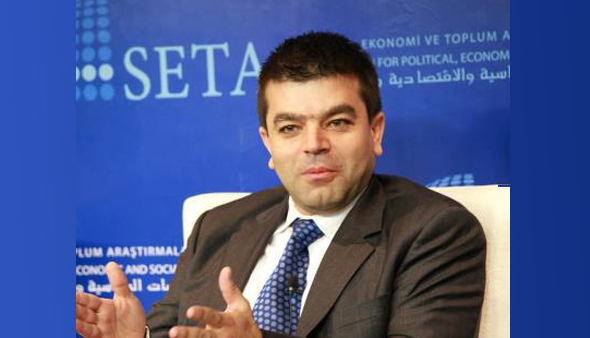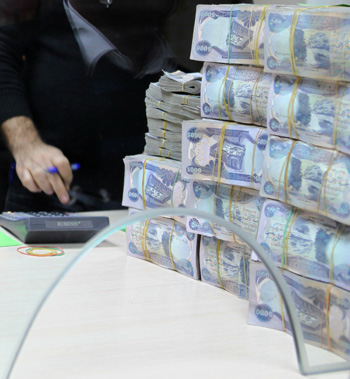The Banking Sector in Kurdistan and Iraq Needs Major Reforms
The banking sector in Kurdistan and Iraq is in need of major reforms. There are a number of banks interested in the market as it has huge growth potential but lack of strong regulator robust regulations is deterring major banking players from entering the country.
Interview with Shwan Zulal, Consultant & Political Analyst

How serious is the situation in the banking sector (Iraqi banking sector is seriously underbanked)?
The banking sector in Kurdistan and Iraq is in need of major reforms. There are a number of banks interested in the market as it has huge growth potential but lack of strong regulator robust regulations is deterring major banking players from entering the country.
There are shortages of skills and technology but this can only be achieved by attracting the right banks to invest in the infrastructure.
Electronic banning is still a novelty and even if available, it is not accessible to many people. This is largely due to lack of IT infrastructure as well as expertise.
The banking sector in Kurdistan and Iraq is in need of major reforms. There are a number of banks interested in the market as it has huge growth potential but lack of strong regulator robust regulations is deterring major banking players from entering the country.
State banks are very inefficient and although have a proportionate share of the market which is largely deposit, it has not helped step up the reconstruction and development of Iraq as expected. The banks structures and the way its run is not viable. Due to theirs size and Monopolies, they discourage competitions.
What is the impact of the state owned banks on the banking market?
The impact on growth is substantial and by having a stated owned bank monopoly, they contribute to the dysfunctional private sector in Iraq, stifling growth and economic activity from other sectors not related to oil. A healthy economy will need a functioning banking system to enable capital flow freely, but that has not happened in Iraq. In order to make that happen, sensible financial regulation is required and state owned entities like the Trade bank of Iraq needs be reined in.
How widespread is the practice of dollar buying from the CB?
The currency buying has made little sense if any and enabled the flow of cash from Iran. This policy was beneficial to Iran as it has been squeezed by international sanctions and in the process, a number of banks in Iraq managed to cash in. The effect it had on the exchange was starving it from liquidity and loss of confidence in the system as well as limiting activity for the parties not involved in the above transactions.
Capital increases hike – what does the Central Bank intend to accomplish with this policy?
The main aim of the Capital increase hike is consolidation the private banking sector, but the strategy has not worked out as intended. Few banks will probably lose their licenses but so far the major players have not come in to consolidate the marked as anticipated. Any doctrine like this would require sound policies and regulations to complement it in order to lure large financial institutions and major banks to Iraq.
Why is there little confidence in banking in Iraq?
Apart from the historical facts that Banking in Iraq has gone through many ups and downs during decades of turmoil and war. This has inherently created a lack of trust in the system. With lack of adequate protection for consumers and business, it will be hard to convince public to entrust their saving to a private bank.
Why are people hesitant to deposit the money in banks?
The hesitance are partly because of the issues above but also the political and security unrest in Iraq and the general public would like to have the option of having instant access to their cash if and when needed.

What is the difference between Iraq and Iraqi Kurdistan?
Foreign investors are keen to invest in Iraqi companies and reap the potential rewards from the growth projections Iraq can offer given its hydrocarbon wealth. Asiacell shares on offer were snapped up rather quickly, largely by foreign investors and this shows the level of interest in Iraq’s potential. However, it is important to note that not many companies have the cooperate structure, Asiacell has in Iraq and the company is based in Kurdistan region where economic policy has been much more successful that the rest of Iraq. Furthermore, the political and security situation in Kurdistan region is far more stable than the rest of Iraq.
Iraq appears to be going inward and towards protectionism in many sectors including banking. Continuing on the same path will only delay the reforms needed to enable a healthy and competitive banking sector which will lead to a more prospers and diverse economy.
Kurdistan region has so far stayed close to Baghdad on the banking front but in other areas have already pursued its own policies for Oil and investment and been successful. For Kurdistan to succeeded and be ahead of the game while Iraq opt for more protectionism, it need to start working on a new and market friendly financial regulations putting consumer protection and competition at the heart of it.
What policies should the regulators implement?
The Iraqi regulators are embarking on some changes and by increasing the capital requirements and restructuring the private banks as well as changes in the exchange services. They are also planning to introduce regulations to be able to have a closer look at private banks and keep the sector lean.
These changes will only affect the private banks and may or may not instill some confidence in the banking sector but the main issues have not been addresses. Which is the monopoly of the state owned banks and making sure they are run at arm’s length and have no monopoly on the sector.
The current reforms in the pipelines are a step in the right direction but the sluggish nature of legislations and introducing regulation does not help inspire confidence. Iraq needs to look outward and let the right business come in and be part of her success. The current trend is more inward looking and hoping Banks and financial institutions will come because the opportunities are immense but, so far that strategy has not worked and only but few large institutions have ventured into Iraq and some have already left.
What is the situation in the Central Bank?
The central bank was created to be part of the new Iraq and have independence but since the decision was taken by the CB to tighten the currency auction stopping money transfers to Iran and possibly Syria, PM, Maliki decided he does not like the decision and opted to interfere.
These measures were all adopted to stop providing those countries under sanctions with foreign currencies. This move has angered the current Iraqi PM, and he interfered by appointing one of his close allies as head of the Trade Bank and a new person to run the central bank temporarily. This move can only be described as power grab by the PM and interference in the CB’s day to day running as soon as they made a decision that he did not agree with.